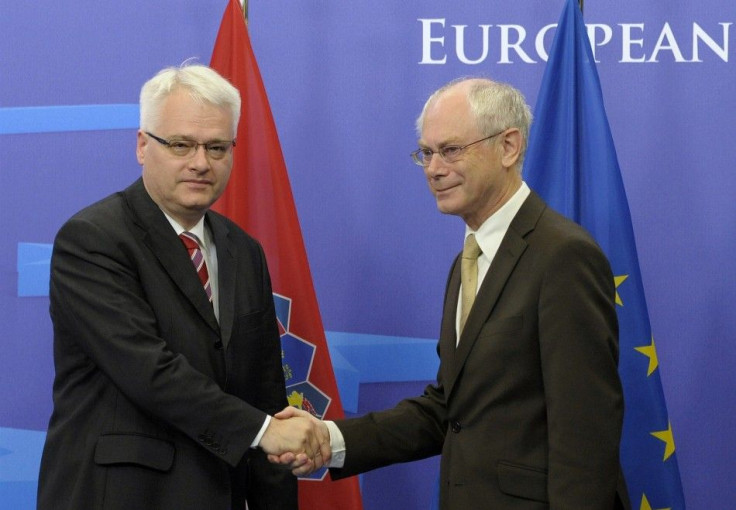Croatia ready to join EU

Croatia has completed European Union accession negotiations, meaning that the nation could soon be the 28th EU member state.
Twenty years after declaring its independence, the Republic of Croatia is in the final stage of what is called the European Commission enlargement process.
Croatia would be the second former-Yugoslavia state to join the international body after Slovenia was accepted in 2004.
Today is a historic day for Croatia and for the European Union, said European Commission president José Manuel Barroso.
The Commission has negotiated hard but fair over the last years, applying strict conditionality and making sure that all EU criteria and benchmarks are fulfilled. This firm commitment has paid off: Croatia is now ready to move ahead.
The Croat nation is not guaranteed entry into the EU, and more negotiations are underway. If approved, Croatia will join the EU on June 1, 2013 according to the commission.
Croatia applied for accession in February, 2003.
Once approved for negotiation, Croatia had to meet the Copenhagen Criteria, a set of requirements that all applicant countries must live up to before being allowed membership.
The Copenhagen Criteria state that member nations must insure that stable institutions that guarantee democracy, the rule of law, human rights and respect for and protection of minorities; a functioning market economy; and the ability to assume the obligations of membership, in particular adherence to the objectives of political, economic and monetary union.
The previous enlargement took place in 2007, when Romania and Bulgaria were added to the EU.
Serbia hopes to be the next nation to start membership talks. Last month's arrest last month of former Bosnian Serb army leader Ratko Mladic was seen as an important step in its own EU application process.
© Copyright IBTimes 2024. All rights reserved.











